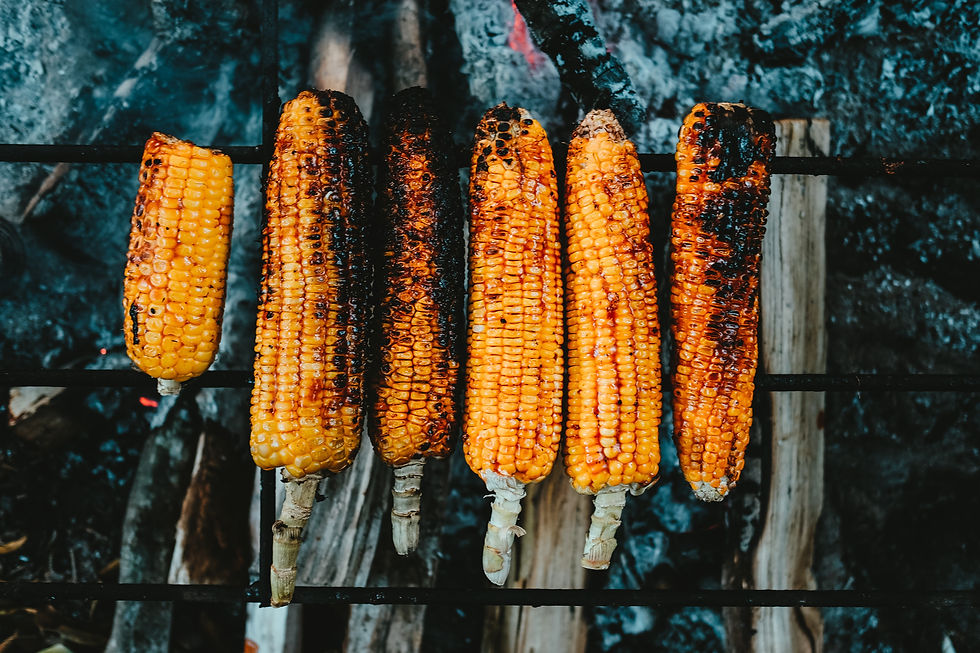Once there was a wise teacher who had a greedy student in his class. Although he was bright, he was greedy, and he had a hard time getting out of this habit. Unlike nowadays, in those days teachers used to teach everything from knowledge to attitudes which can shape the route of generations to come. Hence, the teacher did not give up on him. He thought of doing a trick.
Picking up Corn.
He walked with the student to a corn field and told him to walk into the corn plantation. Forwards, until he sees the biggest corn. Once he sees this, he has to pick this up and, if his corn is the biggest, he would be rewarded. And he cannot come back to pick up whatever he has left on the way into the field. Rules were simple, and off he went.

Rules:
He has to move forward looking to pick up the biggest corn.
He cannot choose his corn on his way back.
He will be potentially rewarded if he wins with the biggest corn.
Off he went into the field. To find the biggest corn, and surely, he came back with a Fairly medium size of a corn, definitely not the winner.
And the teacher asked, is that the biggest corn that you saw?
The boy said, no teacher, there were many other larger corns I have seen along the way.
Teacher: Then why did you pick up not so much big of a corn?
The boy: Well, as were the rules, I had no choice to pick up when I come back, so when I move forward, I always thought, this corn is big, but what if this is not the biggest? I should find a bigger one more forward, surely more often than not I found a bigger corn, but at some point, I came to the end of the cornfield. With no more corn to pick up, I chose the last one. I know my greed had failed me.

Optimal stopping problem - and answer
Before moving onto the philosophical insights, if you want a quick answer to such a question, when should the boy have stopped looking for big corn and picking up instead, the answer is 37%.
The boy should have assessed the sizes of the corn 37% of his journey and after that if he finds a bigger or equally big corn, he should have picked it up. This is mathematically answered question of optimal stopping. And if you ask me why, I will say, because that is proven by mathematically. We do not have to learn deep theorems of why that is so. But, more importantly where and when we should apply the rule. Following are few case scenarios where you can use the 37% rule.
Imagine you are looking for a property to by. You have six months to move out from your current place. How are you going to do this? You cannot wait until the last moment. The answer is 37% roughly two months, you look for places and assess them. After that you buy whatever the next best option you are getting.
Imagine you are looking for a partner, have ten years to go. And you can date, maybe one person per year, and get to know few per year, So, maybe for three years, you can try and pick up the best one from fourth year. I know it looks harsh on the first three. Roughly they have no chance if you stick to this rule. But on the other hand, if you are mathematically oriented you have no data to compare with before three years. So, you may not agree with this yet, these are only facts. I am not asking for you to become a inhuman machine.
Similarly, you can apply this to any difficult choice you have to make over time.

On being content
Now, let's move from case scenarios and look at life. I think more than the mathematical probability of optimal stopping, this story teaches us about life. It is about being satisfied with your choices. Sometimes we have to be content early. And even the 37% rule proves that fact, 37% of something is fairly too early to be satisfied. We sometimes cannot reach the maximum we want. But, if you are satisfied with whatever small achievement you have made, you would be happy. Being too greedy can make you unhappy failure at the end, if the life is like picking up corns in a field. (read happiness paradox)
Would you agree from morning till night everyday what we are doing is picking up corns? What biggest corn have you picked so far? Are you happy and content with it or looking for more still?
Thank you for reading: Picking up corn, Optimal stopping problem or being content.
Comments